GERMANY'S NUCLEAR DOWN
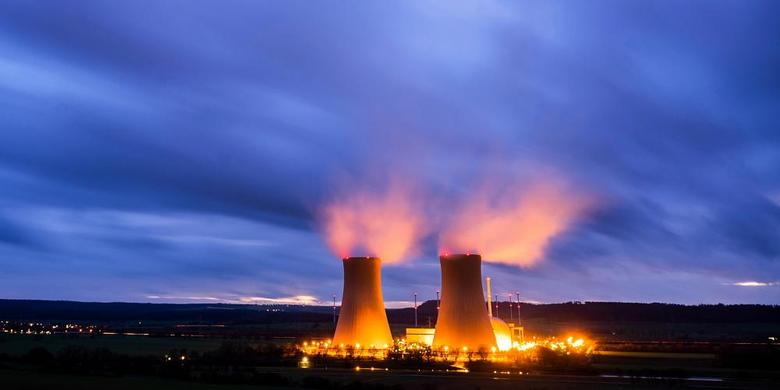
РЕЙТЕР -
-----
Раньше:

2018, March, 14, 11:45:00
REUTERS - U.S. West Texas Intermediate (WTI) crude futures CLc1 were at $60.77 a barrel at 0753 GMT, up 6 cents, or 0.1 percent, from their previous settlement. Brent crude futures LCOc1 were at $64.62 per barrel, down just 2 cents from their last close.
|

2018, March, 7, 15:00:00
РЕЙТЕР - К 9.17 МСК фьючерсы на североморскую смесь Brent опустились на 0,85 процента до $65,23 за баррель. Фьючерсные контракты на американскую лёгкую нефть WTI к этому времени торговались у отметки $62,07 за баррель, что на 0,85 процента ниже предыдущего закрытия.
|

2018, March, 7, 14:00:00
EIA - North Sea Brent crude oil spot prices averaged $65 per barrel (b) in February, a decrease of $4/b from the January level and the first month-over-month average decrease since June 2017. EIA forecasts Brent spot prices will average about $62/b in both 2018 and 2019 compared with an average of $54/b in 2017.
|

2018, March, 5, 11:35:00
РЕЙТЕР - К 9.28 МСК фьючерсы на североморскую смесь Brent поднялись на 0,33 процента до $64,58 за баррель. Фьючерсные контракты на американскую лёгкую нефть WTI к этому времени торговались у отметки $61,44 за баррель, что на 0,31 процента выше предыдущего закрытия.
|

2018, March, 4, 11:30:00
МИНФИН РОССИИ - Средняя цена нефти марки Urals по итогам января – февраля 2018 года составила $ 65,99 за баррель.
|

2018, February, 27, 14:15:00
РЕЙТЕР - К 9.18 МСК фьючерсы на североморскую смесь Brent опустились на 0,15 процента до $67,40 за баррель. Фьючерсные контракты на американскую лёгкую нефть WTI к этому времени торговались у отметки $63,80 за баррель, что на 0,17 процента ниже предыдущего закрытия.
|

2018, February, 27, 14:05:00
МИНФИН РОССИИ - Средняя цена на нефть Urals за период мониторинга с 15 января по 14 февраля 2018 года составила $66,26457 за баррель, или $483,7 за тонну.
|
GERMANY'S NUCLEAR DOWN

N - 4 January 2022 - Germany shut down three nuclear power plants on 31 December, as part of its phaseout of nuclear energy.
The plants taken off the grid were Brokdorf (1480MW PWR) in the northern state of Schleswig-Holstein, Grohnde (1430MW PWR) in Lower Saxony and Gundremmingen C (1344MW BWR) in Bavaria. The three reactors began operation in the mid-1980s and provided electricity to millions of German households for almost four decades.
Decommissioning will take 20 years and cost €1.1 billion ($1.25 billion) per plant. While some jobs will be lost, RWE said more than two-thirds of the 600 workers at its Gundremmingen plant will continue to be involved in post-shutdown operations through to the 2030s.
Germany will have just three nuclear power plants operating in 2022: Emsland (1406MW PWR) in Lower Saxony; Isar 2 (1485MW PWR) in Bavaria and Neckarwestheim 2 (1400MW PWR) in Baden-Württemberg. Their closures by the end of this year will officially end the nuclear phaseout started under former German Chancellor Angela Merkel in 2011 after the Fukshima Daiichi accident in Japan.
A final decision has yet to be taken about where to store used fuel from the shuttered reactors. "The nuclear phaseout makes our country safer and helps to avoid radioactive waste," said Federal Environment and Nuclear Safety Minister Steffi Lemke. "It is now essential to ... advance the search for a final repository for high-level radioactive waste as well as permanent solutions for low- and medium-level radioactive waste," the environment ministry said.
A recent YouGov survey for Welt am Sonntag newspaper showed around half of Germans favoured reversing the nuclear shutdown in face of the recent sharp rise in energy prices. Monika Schnitzer, a member of the German Council of Economic Experts, told the Rheinische Post newspaper that it would make sense "economically and ecologically" to delay the shutdown.
However, Economy and Climate Protection Minister Robert Habeck on 29 December said he did not see the anti-nuclear consensus weakening. The German government said decommissioning all nuclear plants in 2022 and phasing out the use of coal by 2030 would not affect energy security or the goal of making Europe's biggest economy “climate neutral” by 2045. “By massively increasing renewable energy and accelerating the expansion of the electricity grid we can show that this is possible in Germany,” Habeck said.
-----
Earlier:
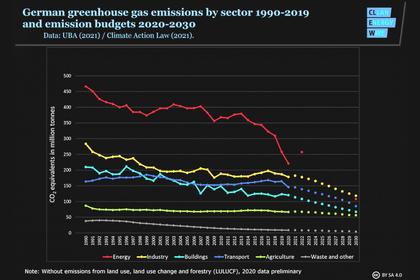
2021, December, 22, 12:05:00
GERMANY'S CO2 EMISSIONS UP
CO2 emissions from power generation thus rose by 13% in 2021, though remaining within the path of the Climate Protection Act.
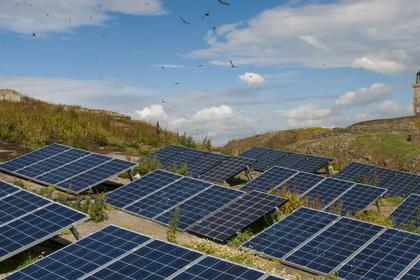
2021, December, 21, 13:10:00
GERMANY'S RENEWABLE ENERGY 11 GW
The volume for solar capacity will be raised by 4,100 MW to around 6,050 MW in 2022 and the volume for onshore wind will be raised by 2,100 MW to around 5,000 MW.
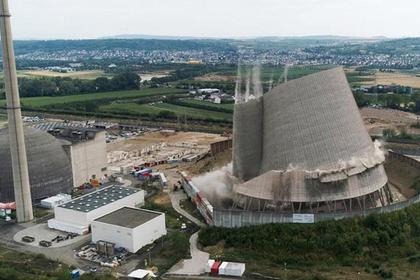
2021, December, 14, 14:20:00
GERMAN NUCLEAR DISMANTLE
The 1284 MWe Gundremmingen B boiling water reactor (BWR) in southern Germany was disconnected from the grid on 31 December 2017 after 33 years of operation. Decommissioning of the unit began the following year. Gundremmingen C - a 1288 MWe BWR - is scheduled to shut down at the end of this year.
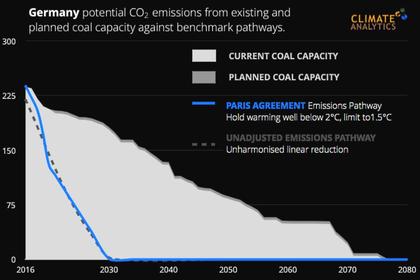
2021, November, 29, 11:45:00
GERMANY WITHOUT COAL BY 2030
Germany will also support the extension of carbon trading to providers of heating and transport, and the introduction of a CO2 border adjustment mechanism at the EU level.
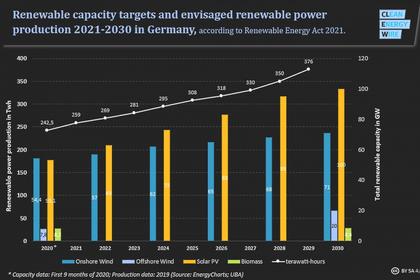
2021, November, 16, 14:30:00
GERMANY RENEWABLE INVESTMENT €50 BLN
RWE aims at tripling its offshore wind capacity by 2030 from 2.4 GW to 8 GW and expanding its onshore wind and solar capacity from 7 GW to 20 GW.
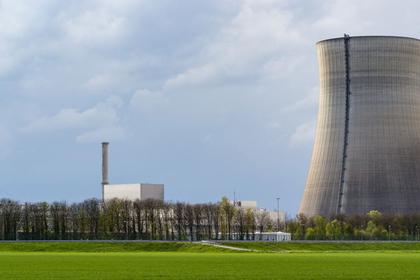
2021, October, 18, 12:25:00
GERMANY NEED NUCLEAR
Germany is increasing the carbon emissions of its energy system by stepping out of nuclear power. And this at a time when the decarbonisation of the electricity industry is the main strategy for effectively achieving an energy system with net-zero emissions.
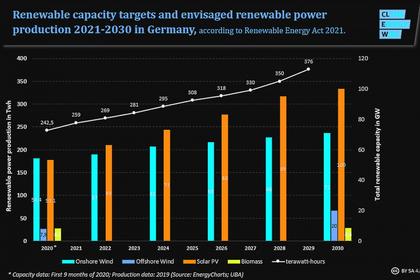
2021, October, 18, 12:20:00
GERMANY'S RENEWABLES 239 TWH
The German transmission systems operators (TSOs) 50Hertz, Amprion, TenneT and TransnetBW anticipate the installation of 8.2 GW of renewable energy capacity in 2022 and a renewable power production increase by 5% to 239 TWh
All Publications »
Tags:
GERMANY,
NUCLEAR,





















